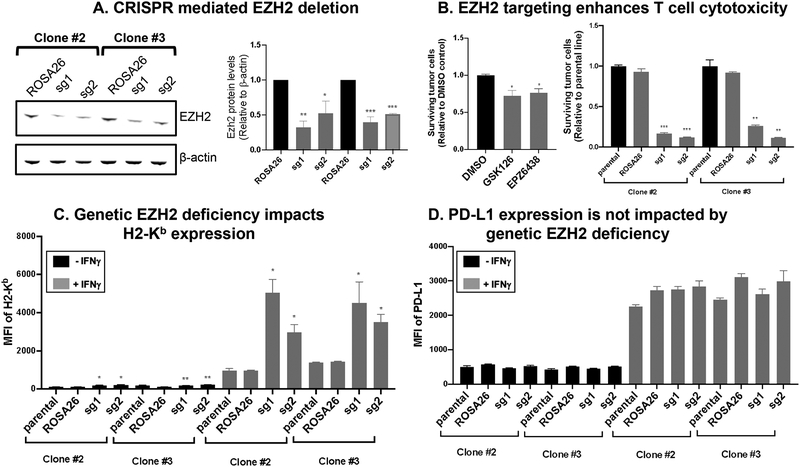Figure 4. Pharmacological inhibition and genetic ablation of EZH2 in tumor cells enhance T-cell mediated killing in vitro.
A. Two CAS9 expressing MOC1-esc1 cell clones, clone #2 and #3 were transduced with 2 independent GFP tagged gRNAs specific for EZH2 genomic editing or ROSA26 control. GFP positive cells were sorted as edited cells. Cell lysates were probed for EZH2 expression with b-actin loading control. The data are representative of 2 independent experiments. B. Tumor: T cell co-culture assay in left panel with GSK126 or EZP6438 inhibition and right panel with EZH2 CRISPR lines. For pharmacological inhibition, MOC1-esc1 cells were treated with 10 μM of GSK126, EPZ6438, or DMSO for 72 hours in the presence of IFNγ. Cells were pulsed with SIINFEKL peptide (0.02 nM, for 2 hours at 37 degrees). In vitro activated and expanded OT-1 T cells were plated with antigen pulsed tumor cells at an E:T ratio of 0.5. After 24 hours of coculture, surviving tumor cells were counted by flow cytometry. Right panel shows co-culture assay with EZH2 deficient cell lines. The data are representative of 2 independent experiments. C, D. Cell surface H2-Kb and PD-L1 expression levels were measured in EZH2 edited and the control lines. The data are representative of 2 independent experiments. *P<0.05, **P<0.01, ***P<0.001. Significance was calculated by Student’s t test and one-way ANOVA. Data are shown as Mean± SD.

